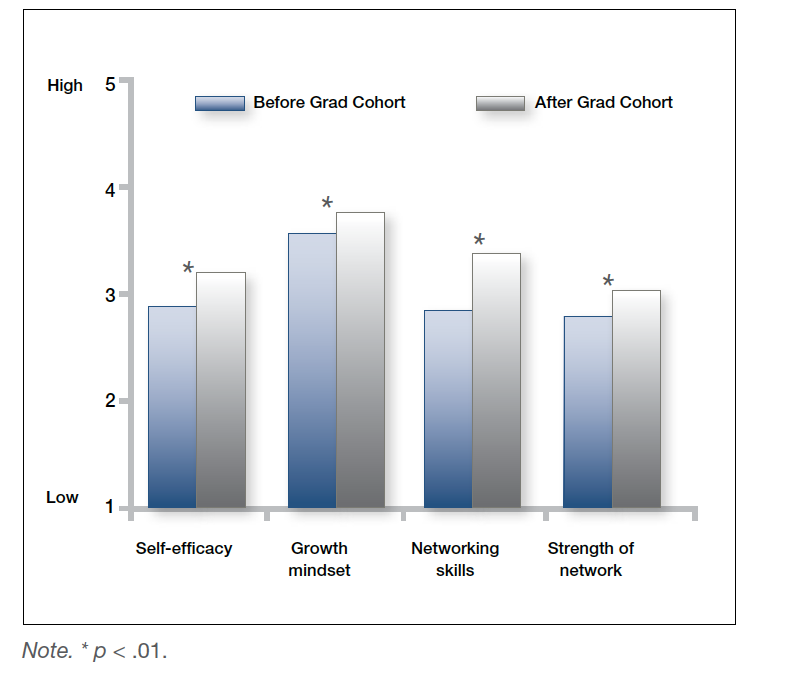Computing Research News
June 2014 Vol. 26/No.6
Center for Evaluating the Research Pipeline Infographic June 2014
By Jessica Cundiff, CERP Research Analyst
CRA-W's Grad Cohort has a positive impact on women graduate students

Grad Cohort is a two-day workshop that seeks to improve the success and retention of women in computing research by advising graduate students in computing on research skills and on career planning and development. Grad Cohort seeks to meet these goals using presentations, panels, and individual mentoring, and by creating professional social networks. Participants (N = 162) completed surveys prior to and immediately following the workshop. Findings suggest that Grad Cohort had a positive influence on participants’ self-reported outcomes. Participants reported greater self-efficacy, greater tendency to interpret setbacks as opportunities for growth (i.e., growth mindset), stronger networking skills, and a stronger network of colleagues after attending Grad Cohort than before. The complete Evaluation Report can be viewed at cra.org/cerp/evaluation-reports.
Note: Self-efficacy was measured by aggregating responses on the following three items: How confident are you that, if you choose, you can (1) publish papers as first author in the top publication venues of your field, (2) discuss your research and other technical topics with senior members of the field, and (3) become a leader in the computing community (response scale ranged from (1) not at all confident to (5) extremely confident). Growth mindset was measured by aggregating responses on the following four items: (1) Obstacles in grad school make me want to give up (reverse-coded), (2) I think of negative feedback from my advisor as a learning experience, (3) People who have been successful in my field have rarely encountered as much failure as I have (reverse-coded), and (4) Failure in graduate school indicates that you are really not meant to be there (reverse-coded; response scale ranged from (1) strongly disagree to (5) strongly agree). Networking skills were measured by aggregating responses on the following three items: (1) It is hard for me to introduce myself to people at conferences (reverse-coded), (2) I feel confident that I can network effectively, and (3) I don’t really know how to make connections at conferences (reverse-coded; response scale ranged from (1) strongly disagree to (5) strongly agree). Strength of network was measured by aggregating responses on the following four items: Think about your relationship with people in the computing community. To what extent is each of the following available to you at this point in your career: (1) People with whom you can discuss professional development questions, (2) A strong network of peers to interact with at conferences, (3) People in your field who you identify with and can relate to, and (4) People who would be excited to learn about your professional successes (response scale ranged from (1) not at all to (5) very much).
This analysis brought to you by the CRA’s Center for Evaluating the Research Pipeline (CERP). Want CERP to do comparative evaluation for your program or intervention? Contact cerp@cra.org to learn more. Be sure to also visit our website at http://cra.org/cerp/.
1828 L STREET, NW SUITE 800, WASHINGTON, DC 20036 | P: 202-234-2111 | F: 202-667-1066




